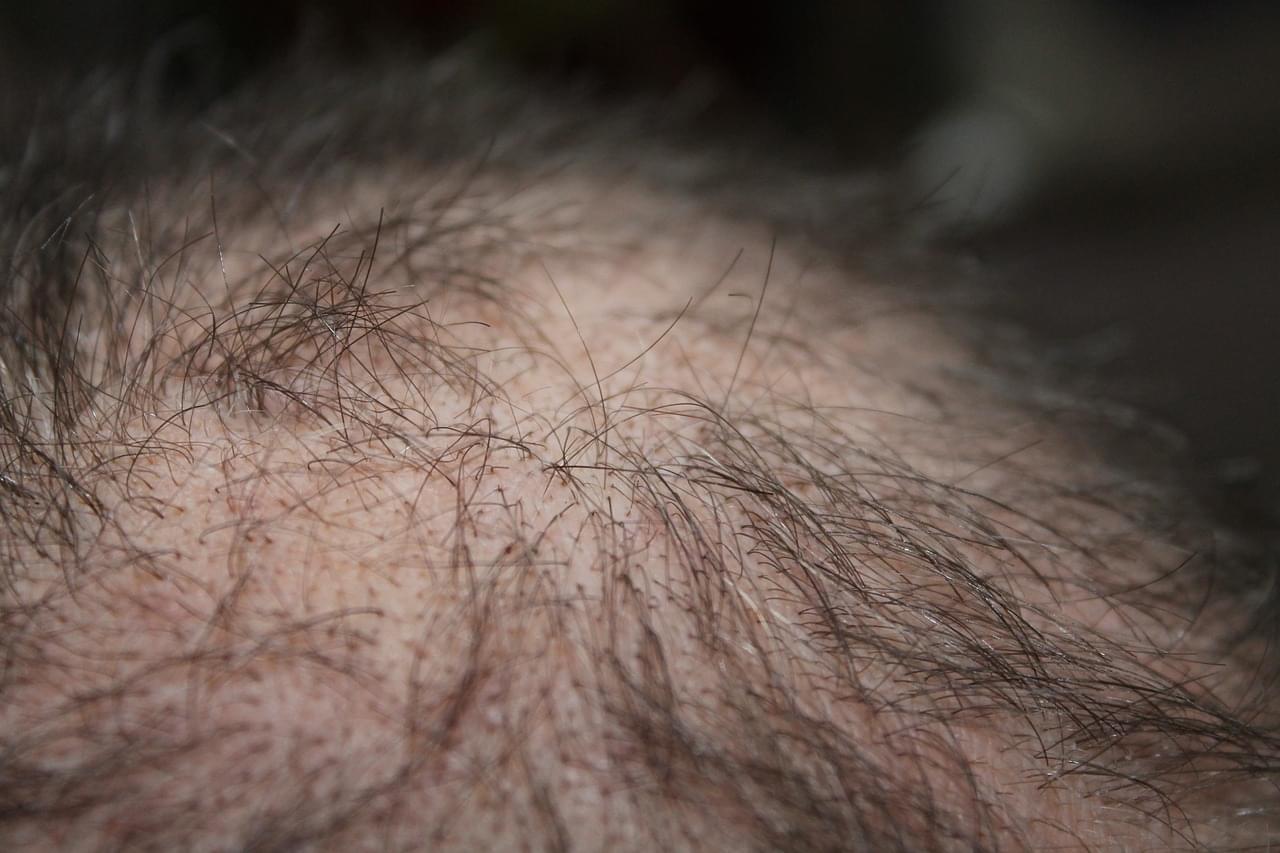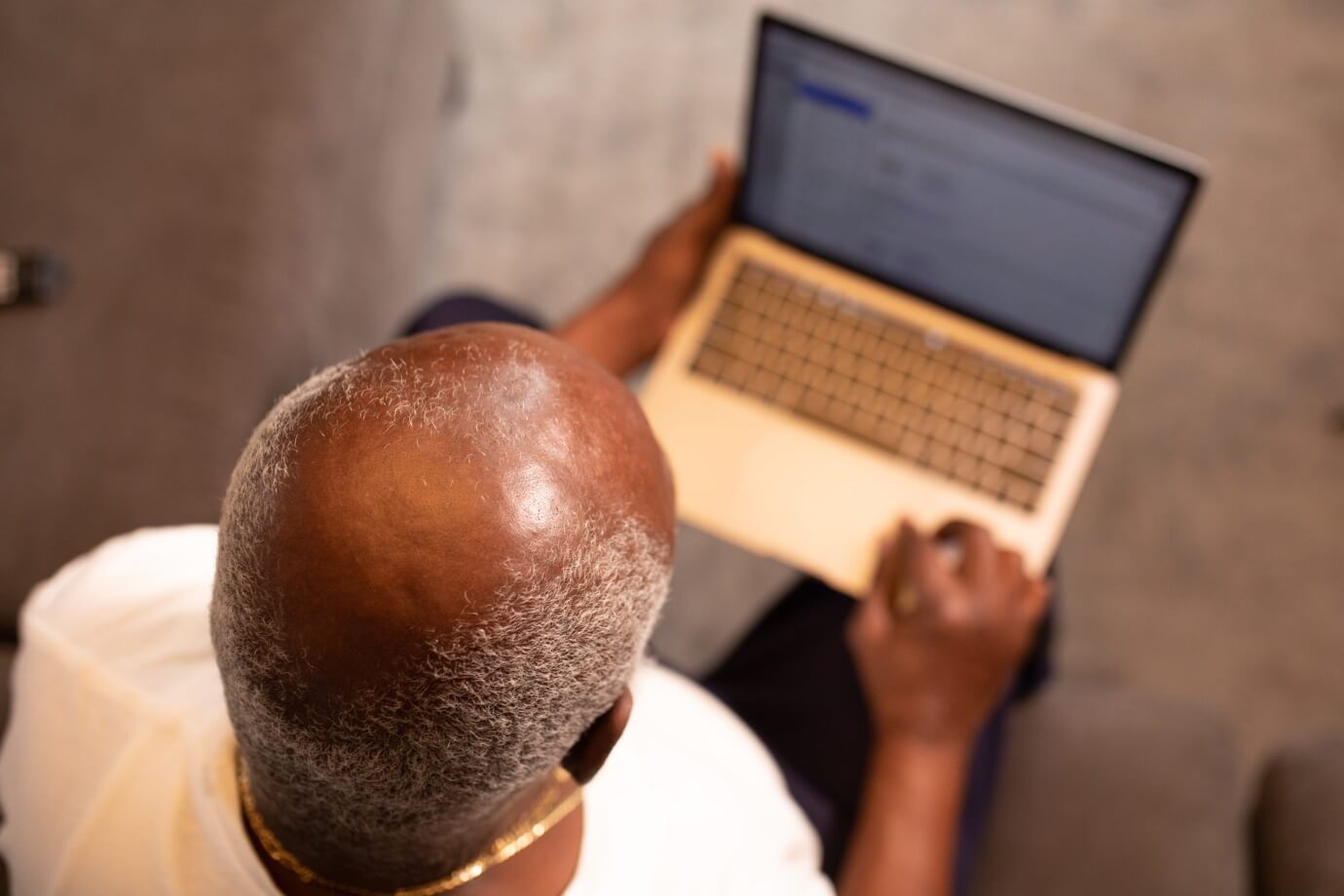Why Is There No Cure for Hair Loss?
- Written by Leo Lordhair
- Feb 12, 2023
- |
- 10 min read
 Listen to the full text
Listen to the full textIs There a Cure for Hair Loss?
Hair loss is a condition that affects millions of people worldwide. It can have a major impact on self-esteem, as well as physical and psychological health. Despite its prevalence, there is still no permanent cure for hair loss. This article seeks to explore the reasons why there is no cure for this common condition.
The most common type of hair loss is androgenic alopecia, otherwise known as male-pattern baldness or female-pattern baldness. The exact cause of this type of hair loss remains unknown, though it appears to be linked to genetics and hormones. Other types of hair loss can be caused by medical conditions such as alopecia areata or telogen effluvium or may be the result of damage to the scalp from chemical treatments or styling products.
While temporary solutions exist for some forms of hair loss, such as medications and topical treatments, there are currently no permanent cures available for any form of hair loss. This article will discuss why no definitive cure exists and what options are available to those suffering from this distressing condition.
Causes of Hair Loss
Hair loss is a common phenomenon experienced by many individuals. It can have a significant psychological impact and lead to feelings of insecurity and low self-esteem. Although its prevalence makes it a subject of much attention, the causes of hair loss remain largely unknown. An allusion to studies in this field has suggested that genetics, hormonal changes, age, medications, and stress are among the most common causes of hair loss in both men and women.
Genetics appears to be one of the primary causes of balding. Scientists are still working to determine which particular gene or genes are responsible for hair loss. Additionally, male pattern baldness appears to run in families, suggesting a strong genetic component at play.
Hormonal changes also appear to be associated with hair loss in some cases. It is thought that hormones such as testosterone and dihydrotestosterone (DHT) can trigger male pattern balding when present in high levels due to conditions like polycystic ovary syndrome (PCOS). Other hormonal imbalances such as thyroid problems or an excess of prolactin may also be linked with the process of thinning or shedding hair.
Although there is evidence linking various factors to hair loss, no single cure has been identified yet. As such, prevention through lifestyle modifications including diet and exercise may offer some relief from symptoms related to alopecia while research continues on potential treatments or cures for this condition.

A thinning scalp but what to do?
No Cure for Hair Loss?
Hair loss is a common problem for many people, with symptoms ranging from thinning of the hair to baldness. Unfortunately, there is currently no cure for this condition, but there are treatments available that can help manage its symptoms. Despite the lack of a definitive cure, researchers and medical professionals have made strides in understanding its causes and in developing treatments to slow or stop hair loss.
Anecdotally speaking, many have compared the experience of living with hair loss to climbing an uphill battle. The difficulty of finding effective treatments can be overwhelming; however, it's important to remember that there are resources out there to help. With the right care and guidance, individuals can find a solution that works best for them and their lifestyle.
The current state of technology has enabled us to take advantage of advancements in both research and treatment options when it comes to managing our hair health. Research into potential cures continues, as scientists work diligently on discovering new treatments that could potentially transform the lives of those who suffer from hair loss. Although the path towards finding a cure may be long and winding, progress is being made every day — providing hope for those who feel lost in their journey towards regaining their confidence.
Looking to the Future for a Cure for Hair Loss
The search for a cure for hair loss has been ongoing for decades. Many studies have been conducted in an effort to identify the causes of hair loss and develop treatments that can be used to prevent or restore hair growth. Despite extensive research, however, no definitive cure has yet been found. Therefore, it is important to consider what the future may hold when looking for a potential solution to this condition.
Additionally, other potential therapies include nanotechnology-based approaches, which could lead to more effective treatments for hair loss in the future.
Even though these studies are interesting, we are unlikely to see major changes in the next few years when it comes to finding a cure for hair loss. A clinical trial on humans is not possible for most potential cures because there are still a variety of steps to be taken before conducting a clinical trial.
Before any potential cure can become available to the public, it must pass through the FDA's extensive research and review process. A total of 10 years can often be required to complete this development and approval process.
Further research is needed before any of these potential cures can be developed and made available to those suffering from hair loss. Scientists must continue their efforts to better understand the mechanisms underlying this condition so that more effective treatments can be developed in the future. Ultimately, such advances could help improve the quality of life for those impacted by this condition.
Treatments for Hair Loss
The quest for treatments for hair loss is a common one, as many individuals experience the condition to varying degrees. With the prevalence of this issue, it follows that treatments exist to help those suffering from it. But why is there no cure? This question is worth exploring to better understand the treatments available and how they can be used to manage hair loss.
The primary treatments for hair loss include topical solutions, oral medications, and surgical options. Topical solutions, such as minoxidil or finasteride, help to reduce further hair loss and promote regrowth in certain cases. Oral medications are also available, including biotin supplements and hormone therapies. Lastly, an array of surgical solutions exist including scalp reduction, follicular unit extraction (FUE), scalp micropigmentation (SMP), and platelet-rich plasma (PRP) therapy.
Learn more about the hair loss solutions out there for you!
Then, there are hair systems - aka hairpieces or toupees - that can be worn to give an individual, usually with hair loss or some other type of balding, the look and feel of having hair. Stock/custom-made hairpieces are typically made of human hair that can be matched your hair color, texture, and style.
Each of these approaches has various advantages and disadvantages that should be carefully considered before deciding on a treatment option.
It is important to keep in mind that each individual's situation is unique; therefore, different treatment plans may have different effects depending on the severity of their hair loss. Consulting a doctor or dermatologist can help to identify the most suitable plan based on one's specific needs and health status. Furthermore, natural remedies such as dietary modifications or stress management techniques may be beneficial in some cases as well. Ultimately, taking proactive steps towards managing hair loss can help individuals reclaim their confidence and feel more comfortable with their appearance again.

Start searching for hair systems to put an end to your thinning hair
Why No Cure for Hair Loss: Final Thoughts
Hair loss is a complex condition, with no simple cure. It is the result of a combination of factors, including genetics and lifestyle choices. There are numerous treatments available to slow the progression of hair loss, but there is not yet a permanent solution. The future of hair loss research offers hope for those living with this condition, as scientists continue to learn more about the biology behind it.
The scientific community has made some significant progress towards understanding the mechanisms behind hair loss, and how it can be treated. Despite this progress, there is still much that remains unknown about this condition. Continued research will be essential in uncovering new solutions for treating hair loss and developing an effective cure.
Read More: Prince Harry Hair Loss
While a lot of people still ask “why is there no cure for baldness?”, people who experience it have access to treatments that can help slow the progression of their hair loss and improve their quality of life. With continued investment in research into this condition, we may one day see a cure become reality - offering hope to countless individuals around the world.
But whilst there is no solution, there are at least hair systems that can have you back with a full head of hair that blends in seamlessly with your own hair. You'll be amazed at the transformative effects - both physical and mental - so, be sure to consult our friendly team for more information.
Breaking down the hair system wearing process
Also, be sure to check out the following blogs:
- Is cholesterol a cause of hair loss?
- How severe is your hair loss? Learn more about the Norwood Scale
- Lordhair weighs in on the hair system vs hair transplant debate


